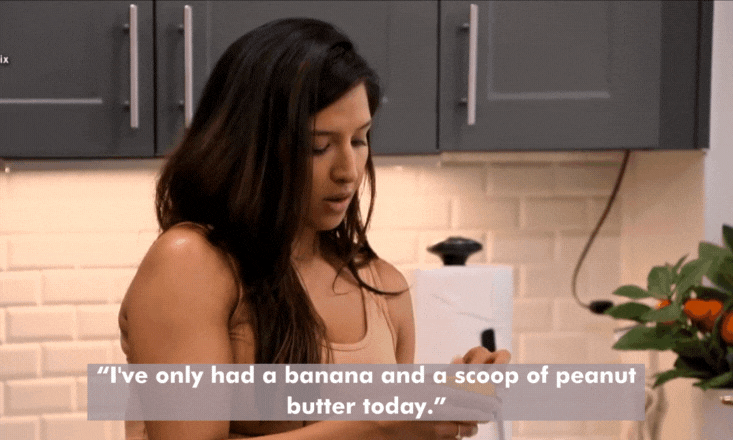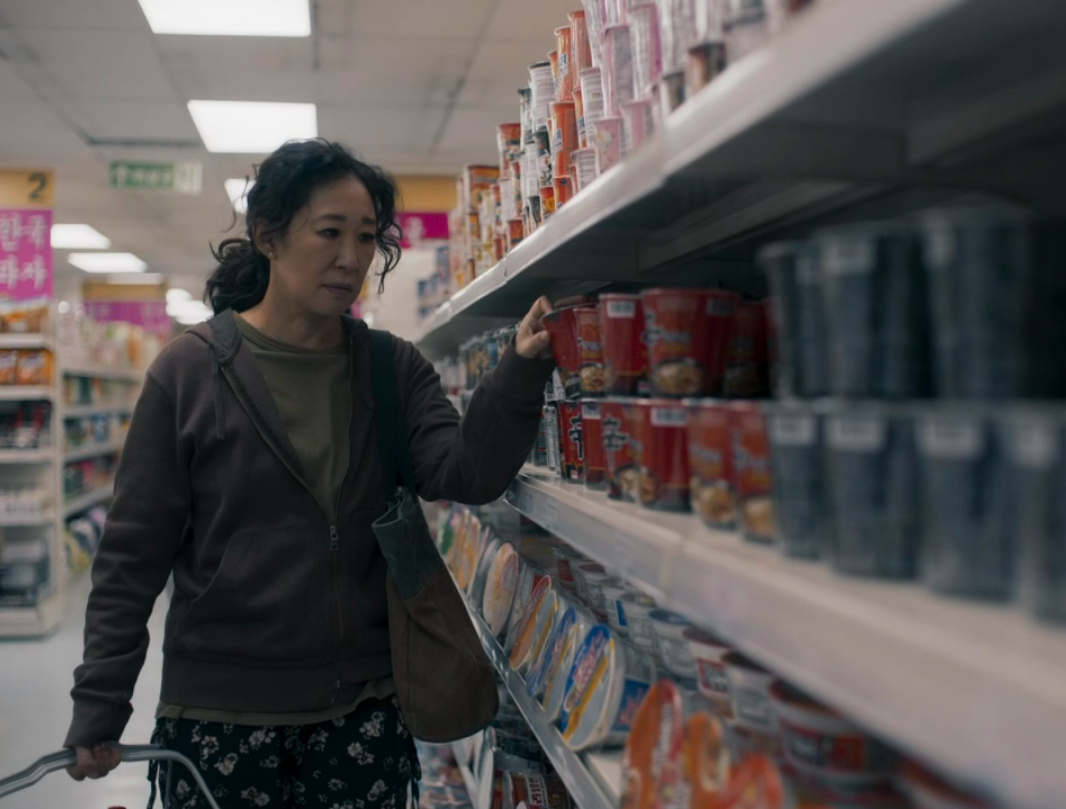
Courtesy of ITV
When did testing (with your mouth) become the way to find true love?
Couched in anxieties about our habits around consumption and commodification, modern love has commitment issues.
DiyoraShadijanova and Editors
18 Jul 2022
The downfall of almost all of the contestants of this year’s Love Island is that they are obsessed with ‘testing’ their connections by getting intimate with other people and comparing the encounters to whittle down a perfect partner. This relatively new phenomenon introduced by last year’s Liam, dominated Casa Amor, a week on the show when a batch of new contestants try to tempt the original cast away from their couples. Almost every person (bar Luca who performatively slept on the day bed) tried it on with someone else to see if what they’ve got with the guy or girl ‘back home’ was real. The new contestants used in the relationship ‘test’ were later binned, and the old relationships now faced a whole set of new and uncomfortable challenges.
By all means date multiple people, but since when has sleeping around to save your monogamous relationship, even when it actively upsets everyone involved, been a thing? Unless I’m a million years old by Love Island standards and simply behind the times, objectifying other people to prove something to yourself doesn’t feel very romantic (or nice!).
I couldn’t help but wonder if this year’s cast is emotionally immature by coincidence or if this behaviour is symptomatic of recent societal shifts in dating. “Apps have made dating feel optimised. Getting your profile looking good makes it into this game that there is always something better,” Annie Lord, Vogue’s dating columnist tells gal-dem. She thinks people today know what dating looks like but are struggling to make committed bonds. “Even with [dating apps] having really hot standout users makes it feel like a video game, and then you’re searching for the best possible winning prize. What this misses are the people you aren’t initially drawn to, but might have amazing chemistry with,” she says.
Annie is tired of having too many choices. “As things stand, it feels harder to create monogamous bonds with people because you know they’re dating others simultaneously, so it’s even more difficult to be committed to seeing something through and staying vulnerable.”
“Dating apps have merely been built on the existing idea that love and sex are commodities for consumption and profit”
Sally Baker, a psychotherapist of 20 years and a Love Island fan, thinks it’s all down to the contemporary commodification of relationships, which is how we’ve ended up with so many podcasters preaching about ‘high-value’ men and women. “Everyone is seen as a commodity, and the contestants seem disassociated from their feelings,” she told me, commenting on the antics in Casa Amor and analysing how they mirror contemporary dating behaviours. “It was disrespectful to the people left behind, specifically the girls who were love-bombed and thought they were making progress with the guys, only to be dumped when the recoupling came. We’ve seen similar scenarios before on Love Island, but it has never been this pronounced.”
This commodification also unfolded in Jacques’ relationships with various women in the villa. He kissed two girls, got in bed with them and played them off against one another in Casa Amor only to later dump them by saying: “I needed to explore different connections to see if what I had with Paige was true or if I was just getting lost.” The girls he was getting with had no say – sadly, they were just his backup options. On a separate occasion, he spoke about Paige like she was chattel to be bartered when Jay, a fellow contestant, became interested in her. Jacques didn’t even ask her how she felt about it and was far more concerned about maintaining his relationship with his ‘bro’. God forbid women had their own say. But even then, the couple both framed Jay’s interest as a test that had to be endured for the strength of their bond, rather than something they both had agency over.
It can be tempting to blame the rise of dating apps when examining why people (on the show and IRL) are increasingly being treated as though they are disposable in romantic settings, but dating has long been referred to as a marketplace. After all, when someone becomes single following an excruciating break-up, they are told they are now “back on the market” and marriages have been used to move up rigid class-boundaries globally for hundreds of years. In recent history, a Motown act, the Miracles, was gleefully recording ‘Shop Around’, a song about “trying on” new partners before making a “deal” in the 1960s.
Since then, the commodification of love has only adapted to the technological innovations of our time, we’ve seen the rise of relationship self-help books with strategies to find an ideal partner and dubious love coaches who guarantee ever-lasting love if you follow their ‘nine steps to attract a guy’. Dating apps have merely been built on the existing idea that love and sex are commodities for consumption and profit. So it’s no surprise that in a society subsumed by neoliberal ideology – where people are perpetually sold the idea that maximum consumer choice equates to freedom – entire populations have internalised the idea that love is about getting the best deal of what’s on offer rather than cultivating a loving and caring bond between individuals.
“We may need to look beyond the realm of dating to the kinds of subjectivity required to fight for and build a different society – one where our material conditions don’t incubate fear, desperation and loneliness, and where our ability to thrive isn’t tied to our sexual ‘success’”
Amber Husain
Love Island is, after all, a constructed dating show without contact with the outside world and an actual competition to win £50,000. Dr. Elena Touroni, a consultant, psychologist, and co-founder of The Chelsea Psychology Clinic, thinks this fact has intensified the peculiar ‘testing’ phenomenon. She also points to some behaviours being altered by group settings. “Many of the guys, for instance, seem to have been egging each other on and backing each other up, which will have made it perhaps easier to absolve themselves of responsibility in the moment,” she says. The audience again saw this when Dami encouraged his friends to kiss other women and get in bed with them because he may have felt guilty for doing the same.
The endless relationship tests may also be emblematic of the added pressure for contestants to perform what they think love is on TV, rather than experience it. As one of the most popular reality series in the UK, Love Island is known for cranking out stars overnight; so it’s plausible that the contestants feel the need to act out their attraction and relationships to stay in the villa for reasons beyond the butterflies in their stomach. Viewers raised an eyebrow when Dami told Jacques to “pretend [he’s] in a rom-com” and then proceeded to run into Indiyah’s arms to recreate a movie-like moment. It seems the contestants know what love should look like, but are they living in a kind of world that actually allows them to experience it by building steady foundations? After all, Dami and Indiyah’s Emmy-worthy scene was a mere week after he coupled up with new girl, Summer, slept in bed with her, made up a personal handshake and dumped her days after Indiyah returned.

Indiyah also recoupled with somebody else, using fellow Londoner Deji as heart insurance. Amber Husain says perhaps this exemplifies another layer beneath relationship tests – a significant fear of replacement. As the author of Replace Me, an essay that examines our society’s obsession with being replaced, it fits her observations to a tee. “When we think of partners as goods we can replace when they no longer fulfil our needs, we’re thinking of ourselves as isolated economic actors, which creates this weird alienation from the people we supposedly love. Against this backdrop, breakups and new partners are often described as acts of replacement,” she tells gal-dem. “The end of a relationship comes to be experienced less like a situation composed of feelings that occur between people than a matter of one or both parties’ rational choice, based on calculations as to our individual needs and others’ personal insufficiencies. We forget not only that others have needs too, but that our needs, desires and capacities are intersubjective – they only arise through our relationships with others.”
Husain believes that the instability of life in a neoliberal society, where care is privatised and inequality rampant, places even more pressure on romantic relationships. “We [either] seek consolation for the material crapness of our lives in romantic partner form or look to romantic partners for literal financial stability. That can’t be helping much in terms of fear of replacement,” she says. We saw this fear of replacement play out when Andrew immediately dumped Tasha when he was told by incoming contestants that she was treating him like a mug behind his back and would most likely, replace him with someone new in Casa Amor. He coupled up with someone because he was fearful that Tasha would replace him. And he was right to… because she did.
So how can the Islanders (and the rest of the Hinge population) build more durable romantic relationships without using other people? Husain urges us to consider how dating trends reflect wider societal conditions. “I think we may need to look beyond the realm of dating to the kinds of subjectivity required to fight for and build a different society – one where our material conditions don’t incubate fear, desperation and loneliness, and where our ability to thrive isn’t tied to our sexual ‘success’.” But while we fix the state of the world, we can also focus on our interpersonal relationships. Dr Touroni thinks that love can’t be found through comparison. “Choosing to commit to someone is an important decision, but it can be made by truly getting to know someone – inside and out – rather than by comparing them to someone else.”

She ate: Maren’s Bones and All journey is a metaphor for radical self-acceptance

Twin Flames: Maybe Love is Blind’s Cole and Zanab were gaslighting each other

Sex Education’s Maeve and Isaac caravan canoodle is a romantic scene like no other






